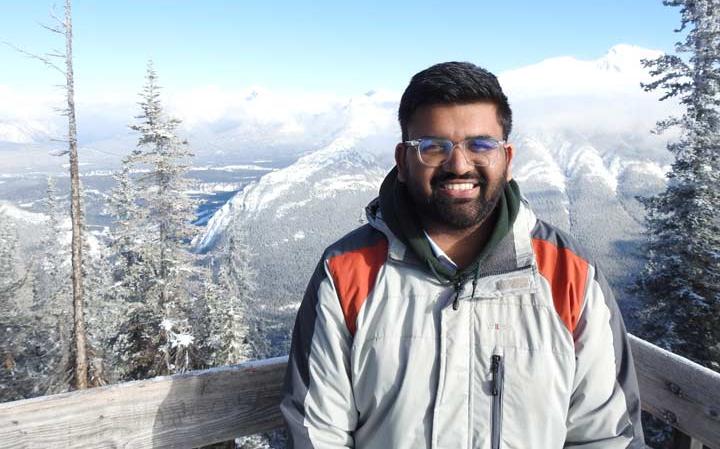
Rohit Singla
Doctor of Medicine and Doctor of Philosophy (MDPhD)
Research Topic
Intelligent Ultrasound for Kidney Disease and Transplant
G+PS regularly provides virtual sessions that focus on admission requirements and procedures and tips how to improve your application.
These videos contain some general advice from faculty across UBC on finding and reaching out to a potential thesis supervisor.
Dissertations completed in 2010 or later are listed below. Please note that there is a 6-12 month delay to add the latest dissertations.
Surgeons and their patients would benefit if, during an operation, a surgeon could inexpensively, safely and non-invasively peer beneath the surface of the organ s/he was operating on. Peering below the surface would allow the surgeon to see blood vessels, tumours and other important structures. Furthermore, it would allow them to better plan their surgery and avoid damaging important structures with their tools. Giving surgeons the ability to peer beneath the surface and better formulate their surgical plan is the goal of image guided surgery research and the focus of this thesis. In this thesis accurate 3D models of cancer tumour phantoms are generated and displayed to the surgeon. This is achieved via the development of: an ultrasound calibration technique (Chapter 2); the augmented reality ultrasound navigation system (ARUNS) (Chapter 3); a miniature projector for surgery called the Pico Lantern (Chapter 4); and the Projector-based Augmented Reality Intracorporeal System (PARIS)(Chapter 5). The ultimate goal is to improve surgical navigation which will help surgeons be more accurate and reduce the amount of healthy tissue they excise during operations.The ultrasound calibration technique improved ultrasound-based pinhead point reconstruction accuracy from 3.1mm to 1.3mm. The Pico Lantern and the PARIS were developed to improve surface reconstruction and to improve the realism of the augmented reality in surgery. The Pico Lantern is a miniature projector for surface reconstruction, augmented reality and guidance in laparoscopic surgery. The PARIS was tested by two surgeons in a user study of 32 simulated kidney cancer surgeries. Compared to using a laparoscopic ultrasound transducer alone, when using the PARIS, surgeons found the surgical navigation more intuitive and they had a better spatial understanding of the underlying anatomy. Furthermore, positive margin rates decreased and there was a statistically significant reduction in the amount of healthy tissue excised. Key conclusions are that wide baseline ultrasound calibration is effective, simple guidance cues are important in augmented reality in surgery and that projected light in surgery is a viable strategy for surface reconstruction and augmented reality.
View record
Member of G+PS
View explanation of statuses
If this is your researcher profile you can log in to the Faculty & Staff portal to update your details and provide recruitment preferences.
